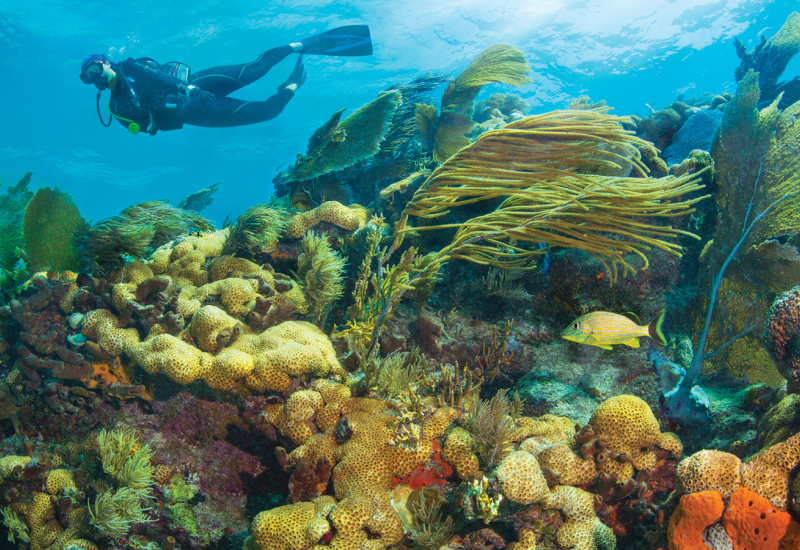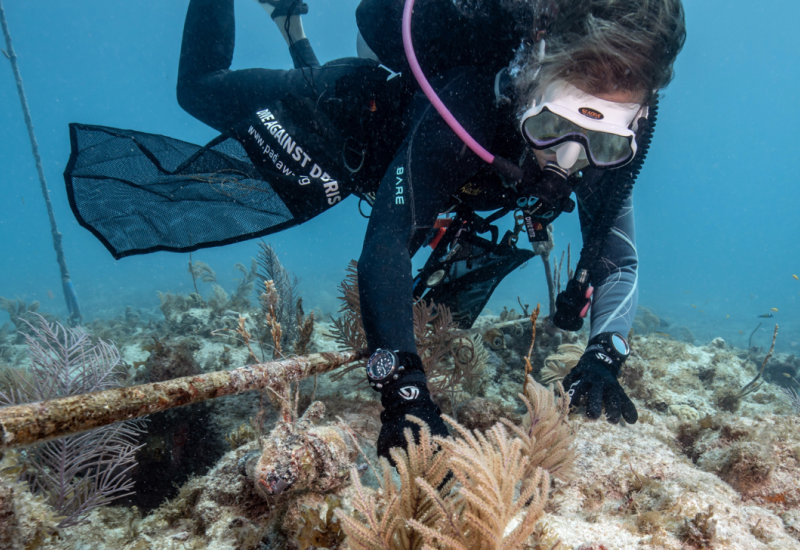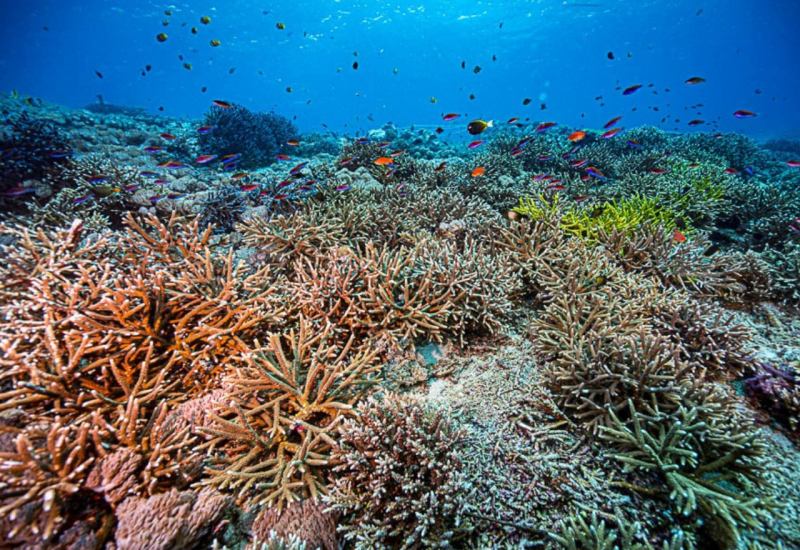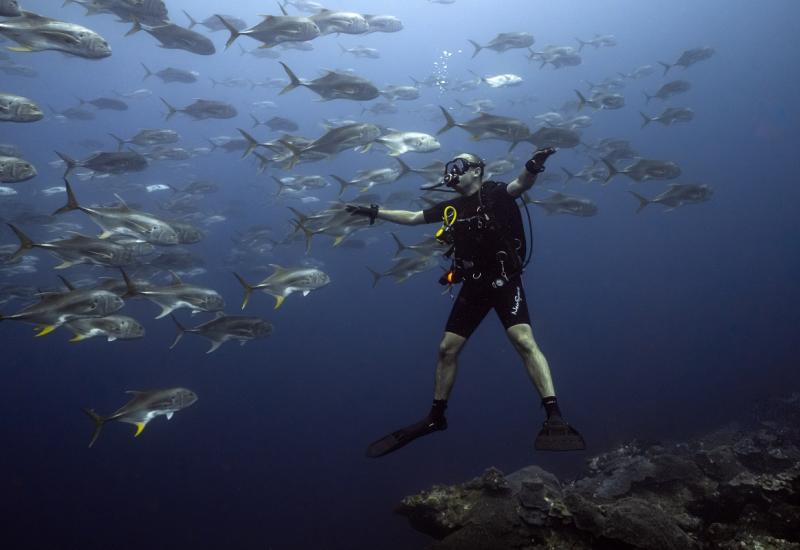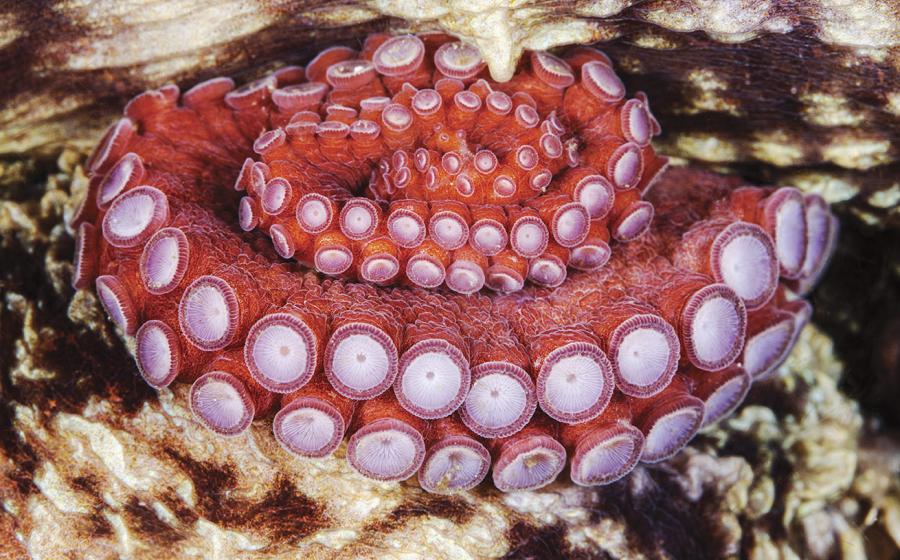Larry McKenna Honored for Saving Leatherback Sea Turtles
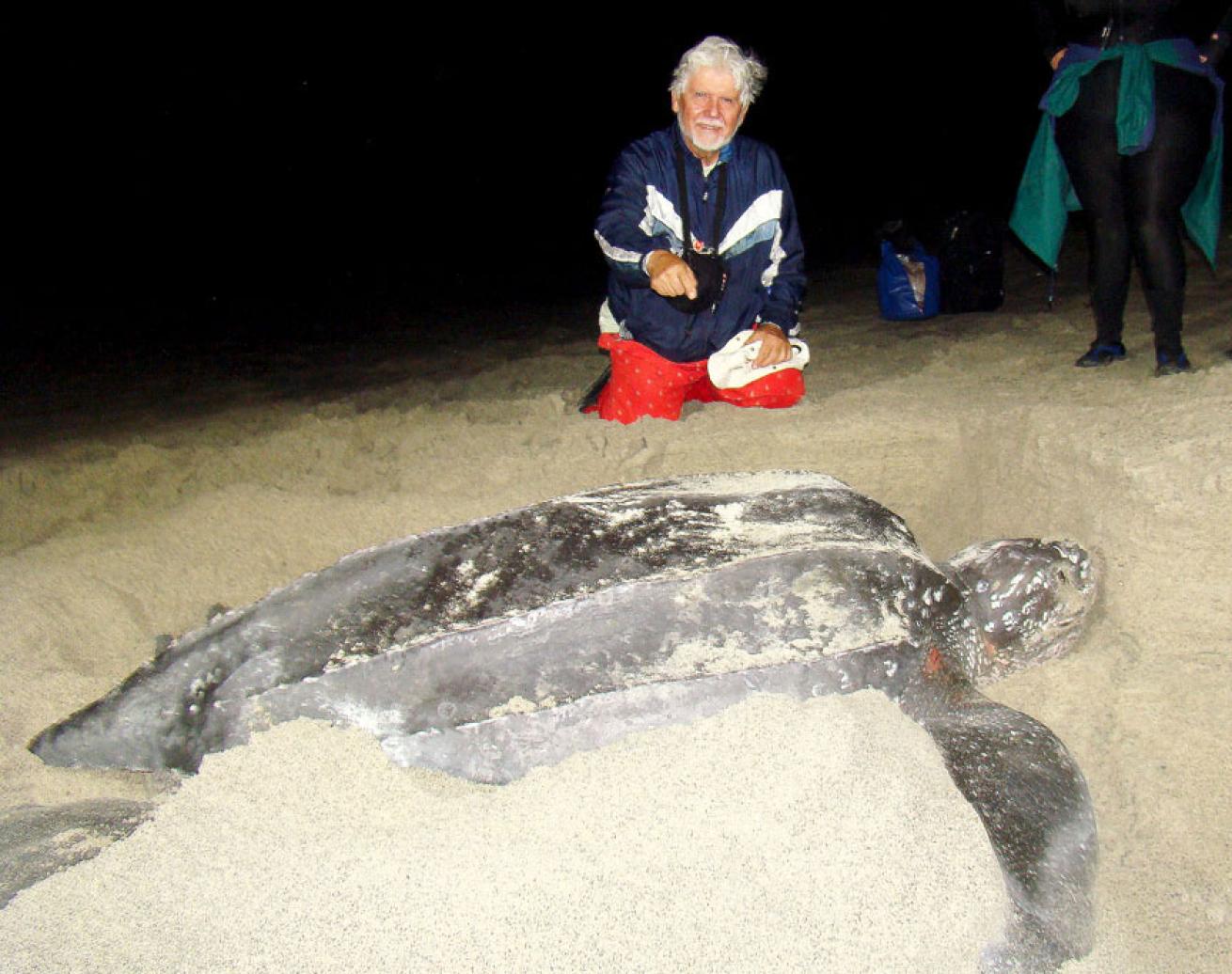
Courtesy Larry McKennaLarry McKenny became a Sea Hero in 2012 for his work with leatherback sea turtles.
Larry McKenna served 26 years in the USAF before turns as an international banker, real-estate developer and resorts developer. In 2005, at the age of 70, he founded the Save Our Leatherbacks Operation, dedicated to saving the Pacific leatherback, whose population once numbered in the millions but has dwindled to fewer than 1,000 today.
What led you to environmentalism this late in life?
Years of diving increased my exposure to many locations worldwide, which was a blessing but also a curse: I observed the damage we’ve created in every ocean, and each of these experiences had a cumulative effect. When I was first told about the plight of Pacific leatherback turtles I knew nothing about them at the time. After considerable research on the issues — decreased nesting sites, human encroachment on their habitats, etc. — I “bought in.”
The more I became knowledgeable and educated on the situation, the stronger the challenge to help. My years of experience in many different venues have provided me with the tools and abilities to move small mountains of resistance to achieve solutions to this particular extinction issue, and to network among all levels of the international community to seek help and support. It’s this latter support on so many occasions that has provided added emphasis to continue and to succeed. My humble efforts to save this giant turtle have now been joined by thousands who pitch in as needed. We are starting to make a difference.
What would you like readers to know about SOLO?
It is a public, IRS-certified nonprofit foundation run entirely by volunteers. All of the donations provided are applied to the project. Every dollar has true meaning.
SOLO isn’t a scientific operation. We seek practical and workable solutions, which can be replicated in other locations, with strong and active support from volunteer science professionals, including internationally recognized marine biologists. All of those who help are volunteers who serve because they care.
How can “ordinary” folks help?
SOLO has a continuing need for active volunteers to assist with helping our effort grow. This means everything from fundraising, marketing and speaking opportunities to spreading the word on social media networks to gain more support.
What was your first leatherback encounter?
I was sitting on a beach at night in remote Raja Ampat, Indonesia, and was rewarded when a huge shadow emerged from the sea foam. A leatherback female crawled toward me and began her nest-making less than 3 feet away. I get goose bumps reflecting on that truly amazing experience, which convinced me I needed to save them.
What led you to writing "Almost Gone"?
I felt a need to document and to educate/inform about my experiences so others could have an easier path to success. The book was sold out in short time; a sequel, Success!, is on its way.
How is SOLO educating the public about Pacific leatherback turtles?
We exhibit at many public functions, including DEMA and Our World Underwater. It’s an opportunity to speak and to meet many hundreds of attendees, and to educate and inform them. We submit articles for publication; give speeches all over the U.S. and overseas. We organize expeditions to see leatherback nesting sites in July and August, and to observe the turtle hatchlings as they make their way to the ocean. We also assist school-age individuals with writing papers and articles about the leatherback crisis.
Can you share with us some success stories from SOLO work?
Part of SOLO’s efforts includes relocating nests. We’ve documented hatch-out rates from these nests are 92 to 95 percent (compared to the “normal” 25 to 35 percent), and in the last two years alone, more than 25,000 hatchlings have reached the sea as a direct result of our activities.
What would you do with the $5,000 award from Oris?
It would be donated in full to the Foundation, to further help the project and provide assistance to the villagers who help us. Social improvements to their lives is necessary for the future survival of the leatherbacks, which nest on these villagers’ beaches.
Meet all the Sea Heroes and see what they're working on.

